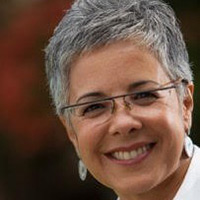I am Governance
Yes, I know ESG means Enviromental, Social, and Governance.
I have taken the liberty to use the acronym to write something different in Portuguese: “Eu sou Governança” (“I’m Governance”) from an insight in preparing a lecture on ESG and the SDGs. By creating the script for the article, I realized that acronyms can be just a handful of letters if they do not have a real meaning.
The ESG movement gained momentum in 2020 when Black Rock – the world’s largest investment fund – disclosed a letter informing the market that it would no longer invest in companies that do not assume ESG principles. Because of this strategic positioning, the acronym became a mantra, and the issues of sustainability and social responsibility migrated from the areas of HR, Communication, and the like to the top leadership, gaining new space in the agendas of Boards of Directors.
This movement – long awaited by activists – has expanded efforts, commitments, and agility to implement the SDGs and Agenda 2030 vision, which, seven years from the deadline, met only 15% of the expected targets, with increasingly alarming data on climate emergency and inequality. According to the Secretary-General of the United Nations, Antonio Guterres: “We have a choice. Collective action or collective suicide. It is in our hands.” Yes, in the hands of each of us.
Governance is an essential principle in all aspects of life. It is the structure that sustains order, responsibility, and transparency. Governance defines rules, agreements, and bases for human coexistence. But instead of seeing it as a distant entity or a collection of abstract rules, Governance must be viewed more personally and directly. The “I am Governance” proposal reminds us that each individual has a vital role in building and maintaining more ethical and fair systems.
In organizations, Corporate Governance is usually understood as an instance of power, distant and for few. However, the decisions made by the top leadership need to be understood and executed by everyone in the organization and – following the principles of sustainability – must involve the entire productive chain. Viewing Governance as a problem of a specific area, is about the “others,” that “someone is taking care of it,” or “has nothing to do with me” becomes an obstacle to taking on a protagonist role and a citizen attitude.
It is necessary to understand that responsibility for Governance begins with the individual. It means making ethical choices, acting with integrity, and accounting for our actions. Every decision we make, whether in our everyday life or our business, is an opportunity to exercise Governance. Responsibility should not be externalized – but internalized. By asking tough questions and fostering difficult conversations. By questioning yourself and others how far we are from the purpose and values we preach.
In addition, “I am Governance” points out that Governance is not exclusive to institutions, companies, or governments. Everyone has the capacity and duty to influence and improve the contexts in which they are inserted. This may include civic participation, advocacy, promotion of social justice, and informed decision-making.
When applied to the business world, the “I am Governance” approach means that every employee plays a critical role in culture, business ethics, and regulatory compliance. It is a reminder that, in a company, everyone is responsible for making decisions that impact not only financial results but also reputation, social responsibility, and its effects on the world.
In governments, “I am Governance” implies that citizens can influence policies, elect honest leaders, and hold their representatives accountable for their actions. Each vote and voice contributes to the quality of Governance.
“I am Governance” is a call for Governance to cease to be just a distant concept but a force emanating from each individual, shaping the world in which we live. At every step, choice, and action, we are Governance, shaping our destiny and the future of our society. Collective action or collective suicide? I choose, and you should do too.
About the author
Vania Bueno is a communicator, speaker, and consultant in Communication in Governance and Human Development Leadership. She is a journalist with an MA in Organizational Development and an activist in Corporate Governance. Bueno has also been an entrepreneur in the communication industry for 40 years and a professor in graduate courses and training for board members.
Destaques
- Global Alliance Launches Recognition Program for Young Communicators
- Alejandro Cornejo Montibeller Joins the Latin American Regional Council of the Global Alliance
- LiderCom Meeting Discusses International Expectations for COP30
- Sports as an instrument of Change
- Aberje Launches Newsletter with Economic Panorama
ARTIGOS E COLUNAS
Carlos Parente A comunicação precisa de um olhar menos vazioLeonardo Müller Bets no Brasil: uma compilação de dados e estimativasLeila Gasparindo A força da Comunicação Integrada: unindo Influenciadores e assessoria de imprensaAgnaldo Brito Diálogo Social e Comunicação Corporativa: A Construção do Valor na Era dos DadosHamilton dos Santos O esporte na mira da crise climática





























